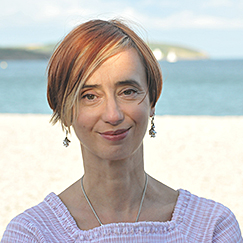Student’s question
Watching Jaws again, what struck me most was how, in the absence of high-tech special effects, they manage to build suspense and a feeling of fear.
For example, having the barrels attached to the shark means you don’t have to show the shark itself — and not being able to see something and know its whereabouts is always scarier than the real thing.
Is it likely that the director came up with the idea of the barrels or do writers need to consider this type of thing when writing scripts?
Once a film is going ahead, I guess you’d collaborate, but if you are trying to sell the script how does it work?
Tutor’s answer
Great question. Chicken before egg? Egg before chicken? I’m not sure.
The simplest answer, I think, is that as a writer you should always strive to be the most innovative, creative and groundbreaking that you can be – write what you want, but try to write it in as fresh a way as possible.
But, in truth, there isn’t a definitive answer to your question. Sometimes a director or producer will say to you ‘We can’t afford to film X Y Z, so can you find a cheaper way of doing it?’.
Reality is, it’s rare that in any script every element will make it through to production — and you often have to rewrite to accommodate production difficulties. It’s a constant negotiation between writer and production.
When I was script editing on Casualty I remember having to ask a writer to pull back and pull back and pull back on a stunt — the accident was supposed to be a mechanical digger flipping over on a building site and trapping its driver.
As production neared and quotes came in for the stunt, it finally ended up as a builder tripping over a spade. True story.
On another Casualty, we were meant to have a roller-coaster accident — due to location / venue difficulties, we had to change it to a coach plunging over a quarry edge.
In the end, it was a much better (albeit cheaper) stunt, and actually, it told the story better and much more subtly.
Aim to write something we’ve never seen before. Aim to surprise us. Aim to thrill us.
– Susannah Marriott
So, sometimes, production restraints are a blessing in disguise. They can open the mind creatively. They help us find much more innovative and thoughtful and inspiring solutions to stories.
The Jaws thing was one such happy accident — the shark didn’t work, but the barrels had already been written into the script, so it wasn’t a massive leap to give them greater focus.
I’d suggest that as a writer you don’t try to do a director’s job for them — unless you feel very strongly that something is done a particular way.
For example, in a thriller or horror script, you could state that something unseen attacks your main character, and that’s acceptable. Listing shots isn’t.
I would always argue that you should try to write the best story possible first, and then worry about production problems.
In terms of trying to flog a script, I’d suggest that you just write what you want to write. Believe you me, TV and film production teams are never backwards in coming forwards when telling a writer about problems.
I wouldn’t worry about that before getting your work commissioned.
If they’re going to buy your script they’ll be buying it because they are impressed by such things as the brilliance of your idea; your sparkling dialogue; bold, truthful characters; a unique voice; and the degree to which they are emotionally affected by what you’ve written.
So, those are the things to focus on as you learn the art of screenwriting.


